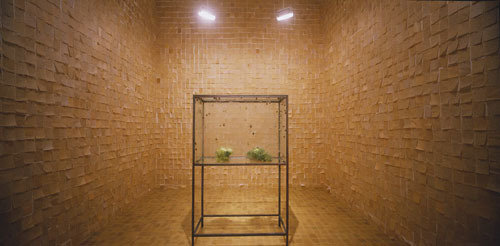Over, Under, Next
dal 17/4/2013 al 7/9/2013
Segnalato da
17/4/2013
Over, Under, Next
Hirshhorn Museum and Sculpture Garden, Washington
Experiments in Mixed Media, 1913-Present. An exhibition of approximately 100 examples of collage and assemblage, primarily drawn from the Hirshhorn's collection.

Butterfly wings, glass shards, doll parts, crumpled automotive metal, jigsaw puzzle pieces, clothing, straight pins, furniture, and colored sand–these are just some of the materials in Over, Under, Next, an exhibition of approximately 100 examples of collage and assemblage, primarily drawn from the Hirshhorn’s collection. Before 1913, when Pablo Picasso and Georges Braque first incorporated commonplace, mass-produced images and found objects into their art, everyday materials were regarded as bric-a-brac. Since then, artists internationally have embraced the idea that art could scavenged from fragments and detritus in the world around us.
Over, Under, Next explores the ways that collage and assemblage have evolved over the last century, from Joseph Stella’s (American, 1877–1946) tiny photomechanical reproduction and cut paper composition to Ann Hamilton’s (American, b. 1956) palimpsest, 1989, a room-sized installation featuring thousands of fluttering pieces of newsprint, beeswax tablets, and snails, among other things.
Also featured in the show is the groundbreaking film Report, 1967, a deliberation on violence and modern mass media that showcases Bruce Conner’s (American, 1933–2008) pioneering montage technique by weaving together film and audio documentation of the John F. Kennedy assassination with other found footage. Together, these works demonstrate how almost in every major art movement of the last century, from Cubism, Dada, and Surrealism to Abstract Expressionism Pop Art, Post-Modernism, and beyond, artists have made use of unorthodox and unexpected materials to challenge conventional definitions of art.
Press contact:
Glenn Dixon (202) 633-2807 E-mail: DixonD@si.edu
Chris Wailoo (202) 633-2833; wailooc@si.edu
Opening: April 18
Hirshhorn Museum and Sculpture Garden
Independence Avenue and Seventh Street S.W.
open daily from 10 a.m. to 5:30 p.m.
Admission to the galleries and special programs is free



